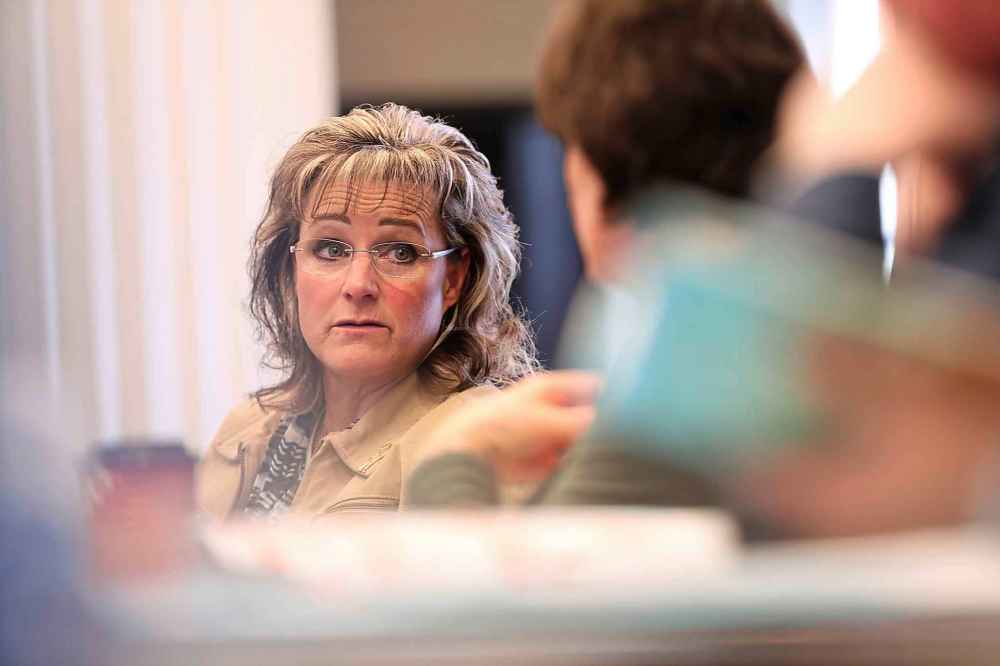Study will probe link between CFS and jailed youth
Read this article for free:
or
Already have an account? Log in here »
To continue reading, please subscribe:
Monthly Digital Subscription
$0 for the first 4 weeks*
- Enjoy unlimited reading on winnipegfreepress.com
- Read the E-Edition, our digital replica newspaper
- Access News Break, our award-winning app
- Play interactive puzzles
*No charge for 4 weeks then price increases to the regular rate of $19.00 plus GST every four weeks. Offer available to new and qualified returning subscribers only. Cancel any time.
Monthly Digital Subscription
$4.75/week*
- Enjoy unlimited reading on winnipegfreepress.com
- Read the E-Edition, our digital replica newspaper
- Access News Break, our award-winning app
- Play interactive puzzles
*Billed as $19 plus GST every four weeks. Cancel any time.
To continue reading, please subscribe:
Add Free Press access to your Brandon Sun subscription for only an additional
$1 for the first 4 weeks*
*Your next subscription payment will increase by $1.00 and you will be charged $16.99 plus GST for four weeks. After four weeks, your payment will increase to $23.99 plus GST every four weeks.
Read unlimited articles for free today:
or
Already have an account? Log in here »
Hey there, time traveller!
This article was published 15/02/2019 (2489 days ago), so information in it may no longer be current.
For the first time in a province with the highest youth incarceration and child apprehension rates in Canada, Manitoba’s government has said it will take action to “end that cycle” of youth caught between the criminal-justice and child-welfare systems. But some are questioning the value of a government study on a problem advocates have been vocal about for years.
A “comprehensive review” of Manitoba’s youth justice and child-welfare systems is underway, Justice Minister Cliff Cullen announced Friday, and it’s expected to result in a provincial strategy that’s planned to be released publicly before the end of this year. Cullen said the province wants to reduce its reliance on jail sentences, cut down on chronic re-offending and increase treatment options and support for youth.
The announcement comes more than a year after a Free Press investigation revealed that, between August 2016 and October 2017, more than 60 per cent of youth in custody at the Manitoba Youth Centre were also in care of Child and Family Services. The province re-iterated that statistic after it did its own analysis of MYC admissions during the month of October, 2018.

That analysis also found about 78 per cent of the youth were “repeat offenders,” and that two-thirds of the CFS-involved youth were charged with violent crimes, while about half of youth who weren’t in CFS care were charged with violent crimes. Seventy per cent of all youth in Manitoba’s criminal justice system had been back there 10 times or more. The province found 80 per cent of youth in the justice system were Indigenous, as were 90 per cent of youth in CFS care.
Many of the youth have mental-health issues, addictions or both, Cullen said, and have been “bouncing between the two systems without having positive outcomes.”
“So we want to make sure we’re providing those services to try to rehabilitate the youth, young offenders. Quite frankly, recidivism rates — people keep showing back up in court — and we have to end that cycle. The sooner we end that cycle, the better outcomes for kids and hopefully keep them out of the adult justice system as well.”
The link between child welfare and justice
Manitoba has the highest rates of incarcerated youth in Canada, according to the most recent data available from Statistics Canada. Out of every 10,000 youth, 22 were incarcerated in 2016/2017 — more than four times Canada’s national rate. Manitoba’s provincial government has often acknowledged it maintains the highest rate of children apprehended into the child-welfare system, but there has never been an inter-departmental review of both systems to find out why such an overlap exists.
Manitoba has the highest rates of incarcerated youth in Canada, according to the most recent data available from Statistics Canada. Out of every 10,000 youth, 22 were incarcerated in 2016/2017 — more than four times Canada’s national rate. Manitoba’s provincial government has often acknowledged it maintains the highest rate of children apprehended into the child-welfare system, but there has never been an inter-departmental review of both systems to find out why such an overlap exists.
When the Free Press reported in December 2017 that teens in CFS care were more likely to become involved in the criminal justice system, former Families Minister Scott Fielding and former Justice minister Heather Stefanson acknowledged the issue but didn’t commit to any policy changes. The province introduced its new criminal-justice modernization strategy in spring 2018, but it focused on adults, not youth.
Meanwhile, a long-term study from the Manitoba Centre for Health Policy is ongoing into so-called crossover youth. It will track overlap between the two systems over the course of 30 years.
It’s unclear how the province plans to keep track of CFS youth who are criminally charged and help them navigate both systems. On Friday, Cullen referenced long-term studies and said tracking is part of the plan.
“Once this strategy is in place, a key component of that will be outcomes so we can measure the metrics going forward, making sure we’re seeing some positive outcomes for youth, and that will obviously involve tracking,” he said.
Similar studies in Ontario and British Columbia found overlaps of between 40-50 per cent between child-welfare and youth-justice systems in those provinces.
The review will be conducted over the next few months with input from youth, Indigenous leaders and other “stakeholders,” Cullen said. Two employees, one in the Families department and one in Manitoba Justice’s constitutional law branch, are responsible for the review, which Cullen said will be completed within existing departmental budgets. He didn’t give specifics on the scope of the review or what it will accomplish, but he said it will involve looking at what other governments have already done in B.C., Ontario and Quebec.
“We’ve had this siloed approach in Manitoba, where other jurisdictions have a more comprehensive approach,” Cullen said.
The long-standing overlap between child-welfare and criminal justice was one of the reasons the office of Manitoba’s Advocate for Children and Youth pushed for broader power to investigate youth justice files, something it’s been able to do since new legislation was brought in last March. Manitoba Advocate Daphne Penrose said she wasn’t previously aware of the government’s plans to launch a review. She said she’s supportive of a review, but she encouraged the province to also look at the health system. Increased access to mental-health services and early intervention programs for kids is key, she said.
“If a child has mental-health issues because they’ve suffered a significant amount of trauma, and they turn to drugs and alcohol to try to cope because they can’t access the services they need, and they grow up in an environment of violence because there’s not the help the family needs, that is a multi-systemic response that is bigger than just justice and family services. It needs health at the table,” Penrose said. She urged government officials to speak to youth directly as part of the review — something Cullen said they will do.
NDP MLA Nahanni Fontaine, justice critic for the Opposition, questioned the timing and the wisdom of the review. She said she thinks the government is “just trying to kick it down the street for another time” before heading into another provincial election.

“We know what needs to be done now. Just do it now,” she said, suggesting the provincial Progressive Conservatives should focus instead on not cutting restorative justice programs rather than studying an issue that was already discussed during Manitoba’s Aboriginal Justice Inquiry decades ago.
As a result of the Free Press’s coverage of so-called crossover youth, Manitoba Justice said in January 2018 that it was monitoring bail program changes that Ontario introduced as a way to stop youth in the child-welfare system from getting trapped in a cycle of repeated criminal breach charges.
katie.may@freepress.mb.ca
Twitter: @thatkatiemay

Katie May is a general-assignment reporter for the Free Press.
Our newsroom depends on a growing audience of readers to power our journalism. If you are not a paid reader, please consider becoming a subscriber.
Our newsroom depends on its audience of readers to power our journalism. Thank you for your support.













